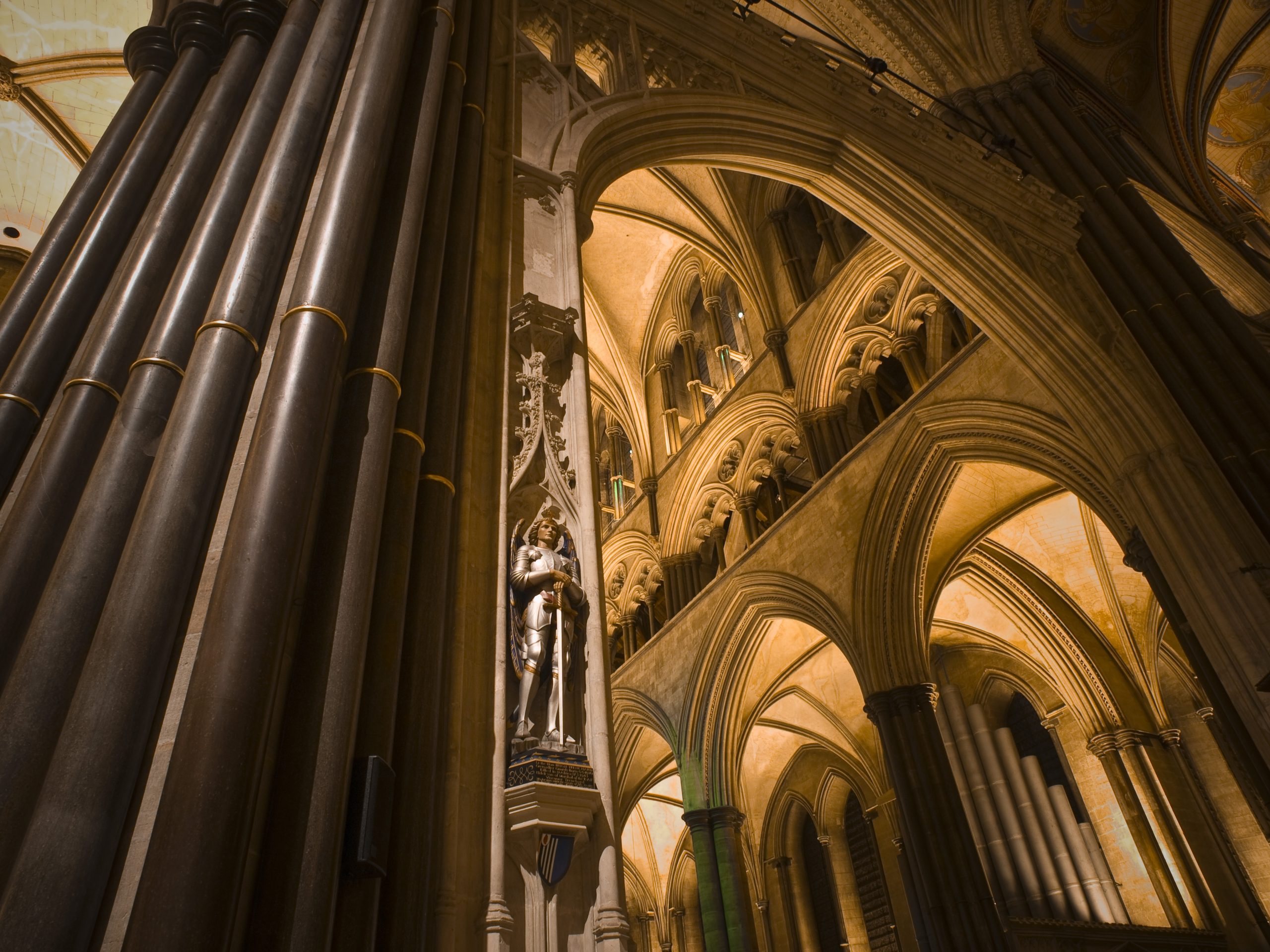Evensong Sermon for Third Sunday before Advent

A sermon by The Very Revered Nicholas Papadopulos
Isaiah 10: 33-11: 9
John 14: 1-29
Max grew up in the Jewish community in Brazil. He was an enthusiastic member of the Zionist Socialist movement and from an early age was fascinated by the story of modern Israel’s foundation and its early struggles to survive. He longed to become a citizen of the Jewish state. Aged twenty he realized this ambition, crossing the world to Tel Aviv. He learned Hebrew and was eventually conscripted to do his national service in the Israel Defence Force.
Joining the army gave him immense pride. He longed to give something back to the state which had welcomed him. He yearned to do something significant, picturing himself as the moral soldier, ridding the world of terrorists. He was assigned to an infantry brigade and served in the West Bank, on the Gaza border, and in the north of Israel.
One day he was in the historic West Bank city of Hebron, where Abraham and his family are buried in the cave of Machpelah. Claimed as a holy site by both Muslims and Jews, Hebron is tense. A few hundred Israeli settlers have made their home in the centre and are protected there by an equivalent number of soldiers. Max and his commander were ordered to establish a checkpoint near the settlement and to check all Palestinian men of military age.
They were doing so when, all of a sudden, a bell rang, and from the other side of the street young Palestinian children began to emerge. It was the end of the primary school day, and there were lots of them. Max and his commander stood between them and the settlement. But they were only children. ‘Line them up’ ordered the commander. ‘Line them up and search their bags’. Max did as he was told. He was as nice as he could be with the children – he was the moral soldier, after all – and he began to search their bags.
‘What are you doing?’ someone shouted. Max looked up. It was a Dutchman, a volunteer with an international agency. ‘What are you doing?’ he repeated. Nettled, Max shouted back. Didn’t this visitor understand that terrorists could make cynical use of innocent children? But even as he said it he was questioning his own actions. Why was he doing what he was doing? How did lining up young children and searching their bags make his country safer?
It was a turning-point for Max. On discharge from the army he sought out an organization called Breaking the Silence, and began to work for it. Breaking the Silence is made up of Israeli army veterans who have served in the occupied territories and whose view of the Israel/Palestine conflict has been changed by the experience. Breaking the Silence volunteers testify to what they have seen and heard. There are more than 1400 of them, men and women who dare to break rank with the communities in which they live and dare to witness to the injustice which they believe is being visited on their Palestinian neighbours. They are courageous men and women who speak truth to those who shut their ears to it. It was to this risky life – this lonely life – that Max committed himself.
Then on 7 October 2023 he awoke to the sound of sirens. Hamas had launched its terror attack on Israel. At that point the media were reporting fifty deaths. Through the day the grim total grew and grew, and the full horror of what had happened emerged. Within a few hours his military commander had called him. Like most Israelis under the age of forty Max had remained a reservist. He could not stay at home while his country was under attack. He went to his allocated base and reported for duty.
Max’s story is the nearest thing to a story from the front line that I have ever heard first-hand. It is not a story of the Western Front in 1916, or of the Normandy beaches in 1944. It is not a story of the estates of Belfast in 1974, or of the sands of Afghanistan in 2001. But I think it probably contains within it themes common to all those other theatres of war: youthful idealism; dreams shattered; huge courage; duty done; loyalties strained; quick but consequential decisions. It is a story of a nation’s self-image and of how that nation is seen by others.
It is a story of humanity, and so it is a story whose every twist and turn is known intimately by God. In his house there are many dwelling-places; in his house is an infinity of understanding and compassion; in his house is our hope.




